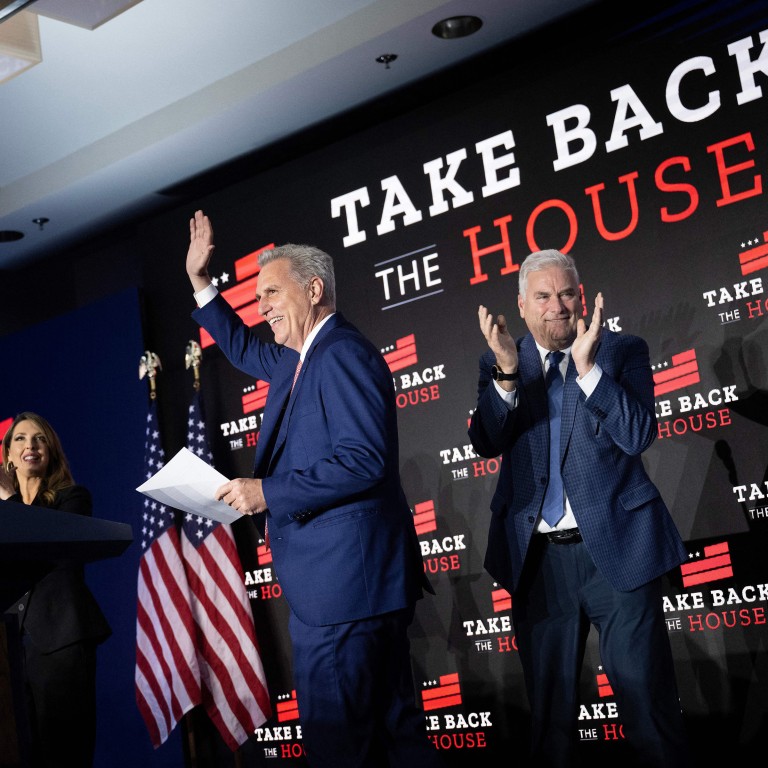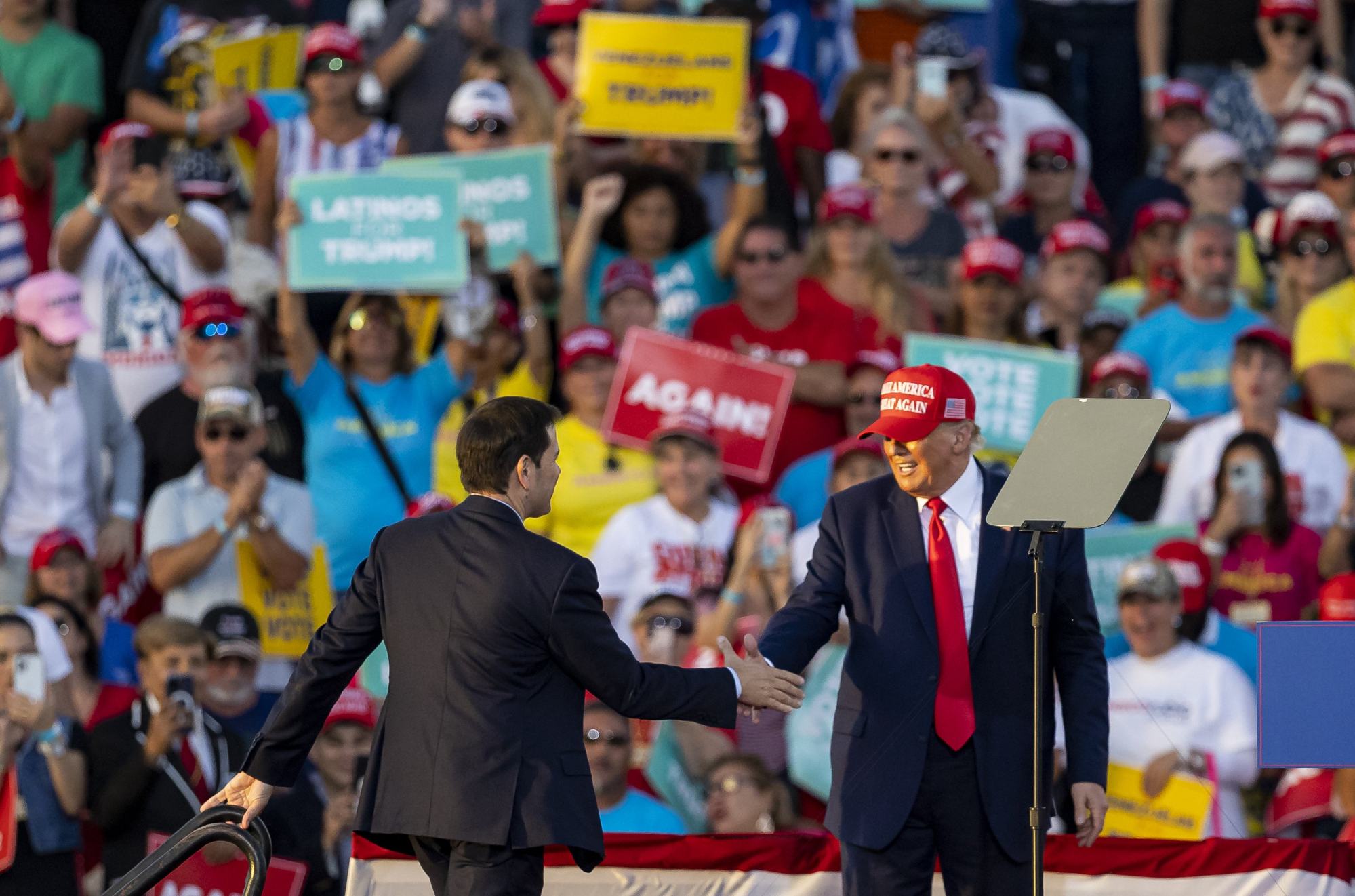
After House gains, Republicans’ differences on being ‘tough on China’ to emerge: analysts
- Whether on economic ‘decoupling’ from Beijing or bolstering support for Taiwan, American lawmakers’ approaches expected to span pragmatic to far-flung
- Even without Senate control, Republicans to enjoy greater leverage to force US President Joe Biden’s hand in confronting China
In the Senate, the Democrats may be able to retain their razor-thin control of the 100-seat body. Three of the 35 races were too close to call on Wednesday, and it could be weeks before control of the upper chamber is settled if it comes down to Georgia’s race, which is headed for a run-off in December.
Should the party take control of the Senate, House Republicans could in fact be forced to be more pragmatic in their proposals because “they actually have a chance to get them through and they’re going to face resistance to outlandish or extreme stuff from their own party in the Senate”, according to Anna Ashton of Eurasia Group, a consultancy.
As any Senate configuration would be close to 50-50, even if the Republicans took over, Democrats would have the power to block or delay votes by using the filibuster rule, under which 60 votes are needed to end debate – an unlikely tally for either party.
A post-trade war world
US midterms: control of Congress still unsettled, with several races unresolved
China is now the source of 18 per cent of total US goods imports, down from 22 per cent at the trade war’s outset.
Meanwhile, construction spending for electronic manufacturing capacity in the US has gone “way up,” according to Mary Lovely of Peterson. Lovely said more complex and capital-intensive manufacturing would expand in the US, while labour-intensive and routine manufacturing would stay in Asia.
Tough on China “too simplistic”
Politicians on the midterm elections trail drew attention for their anti-China rhetoric. Republican JD Vance, who prevailed over Democrat Tim Ryan in Ohio’s hotly contested US Senate race on Tuesday, had called for stiffer tariffs on China.
A month ahead of the elections, Senator Rick Scott of Florida, who chairs the National Republican Senatorial Committee, urged for “decoupling all American business” from China.
But Clete Willems, a former deputy director of the US National Economic Council and now with law firm Akin Gump, believed it would be too “simplistic” to assume that Republicans were united in what it means to be “tough on China”.
“There is a viewpoint that many of the tariffs are not well targeted and actually have a negative impact on the economy,” said the former economic adviser. “I think there will be an interest in the Republican side in possibly having a tariff exclusion process.”
“You’re going to get a lot of action on export controls and Taiwan, but I think Republicans are more interested in pursuing some of the aims of the phase-one deal and represent more agriculture and energy exporter interests that want to see more exports to China,” Willems added.
The phase-one deal included a promise from Beijing to expand purchases of certain US goods and services by US$200 billion for a two-year period starting in January 2020.
Carol Miller of West Virginia, who represents a House district that exports energy abroad, has pushed for increased exports to China in key sectors, saying it was needed to close the US’ trade deficit. She handily won re-election on Tuesday.
California congressional race pits Asian vs Asian, with an anti-China bias
With Republicans projected to win the House by a narrow margin, the incoming majority leader would need every vote to pass bills, giving any organised faction of the party more sway over the legislative agenda.
Emphasis on enforcing current restrictions
Rather than focus on pressuring the Biden administration to adopt more controls over semiconductors and other products, Republicans might instead emphasise enforcement of current restrictions, specifically in greater transparency in licensing policies, observers said.
Some Senate Republicans have said they would prefer “an initial policy that is more focused on review and oversight than empowering the president to restrict specific transactions”, according to Ashton.
Such a position is in part motivated by not wanting to grant too much power to an executive branch led by a Democrat, she said.
Republicans will invoke transparency over licensing decisions to make sure they are implemented restrictively, Willems added.

Limitations in existing customs enforcement for various trade controls could lead to excessively expansive interpretations or leave open the possibility of follow-on legislation that might lead to broader decoupling, Ashton said.
Republican dissatisfaction with current licensing reviews is evident.
In an interview with Politico in October, Representative Michael McCaul, a Texas Republican who was re-elected on Tuesday and in line to lead the House Foreign Affairs Committee, said he planned to review the Commerce Department’s Bureau of Industry and Security, which approves export licences.
US’ hard line on China likely to hold whoever wins midterm elections: analysts
Differences over Taiwan
On Taiwan, while top Republicans on various Senate and House committees relating to foreign and defence affairs have committed to making military support for the self-ruled island a priority, others within the party advocate a more isolationist approach.
Trump Republicans are interested in an isolationist foreign policy and libertarians like Rand Paul are concerned about stoking the United States into war, said Clayton Allen from the Eurasia Group at an event Wednesday.
“This battle between the isolationists and the interventionists in the Republican Party is going to play out in the presidential primary,” Allen said.
Kevin McCarthy, current Republican House leader who was re-elected Tuesday, has previously stated that he would visit Taiwan with a congressional delegation in tow if he becomes House speaker.
Regardless of the divisions within the party, however, Republicans “definitely will leave Biden less room on China,” said Stimson Centre’s Sun. “He will have less flexibility, especially on issues that he still seeks to strike a conciliatory tone with China.”

